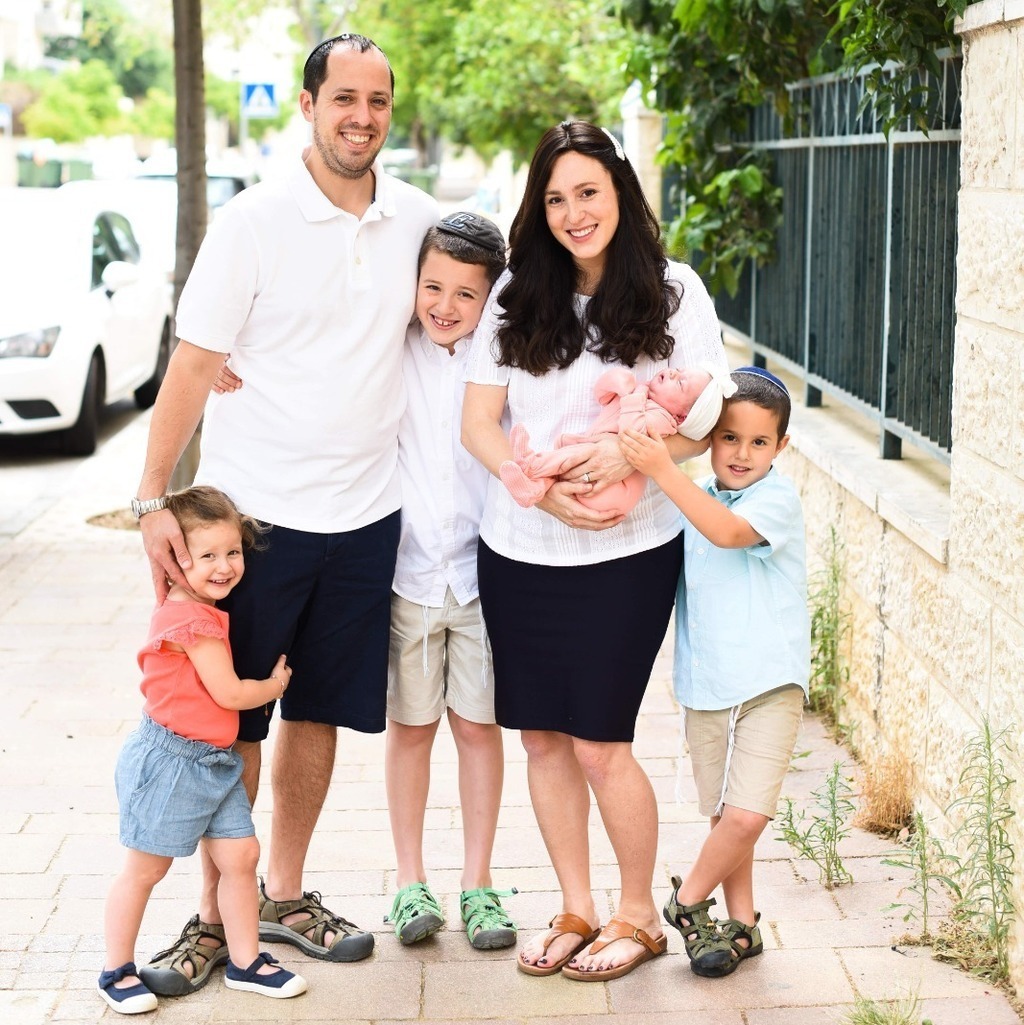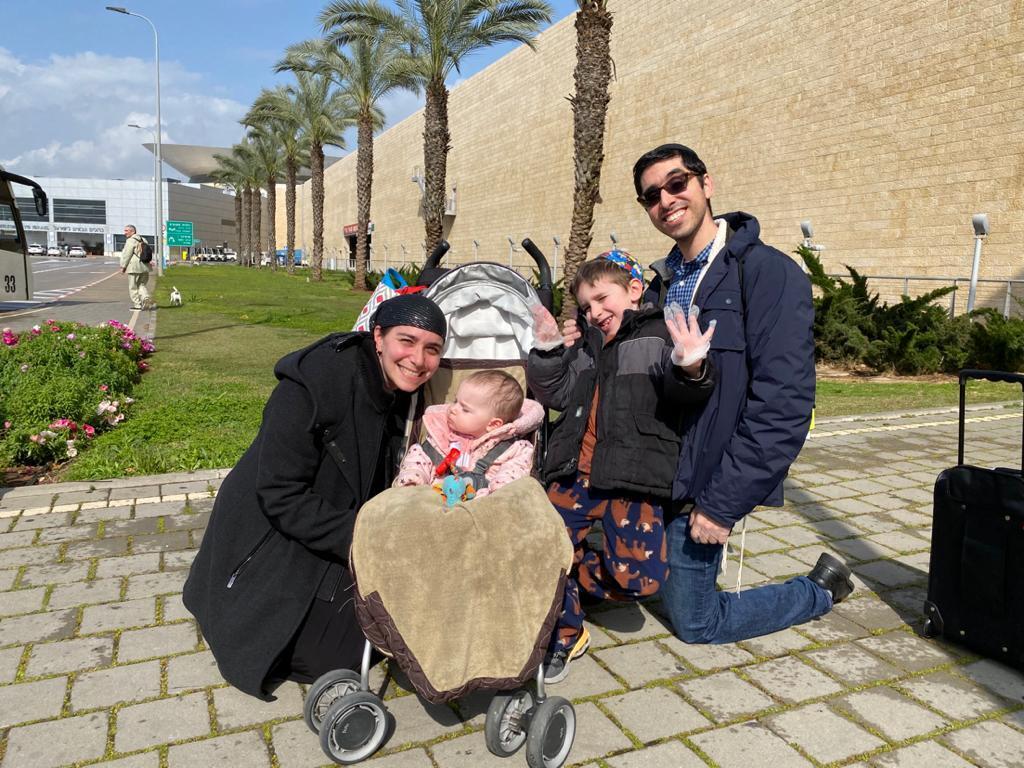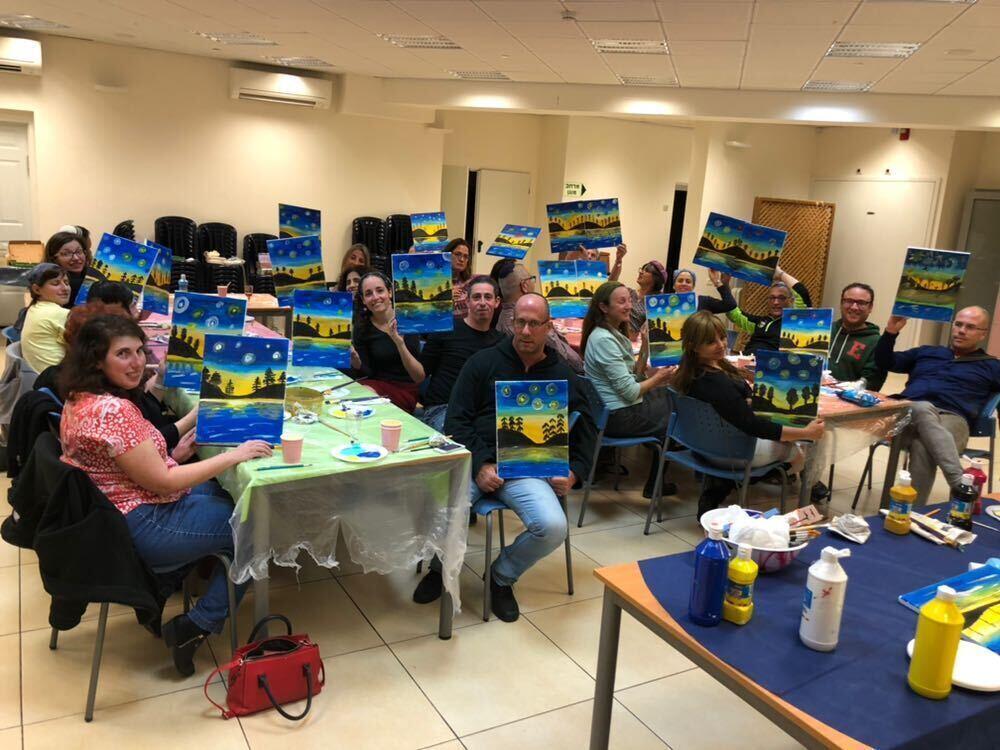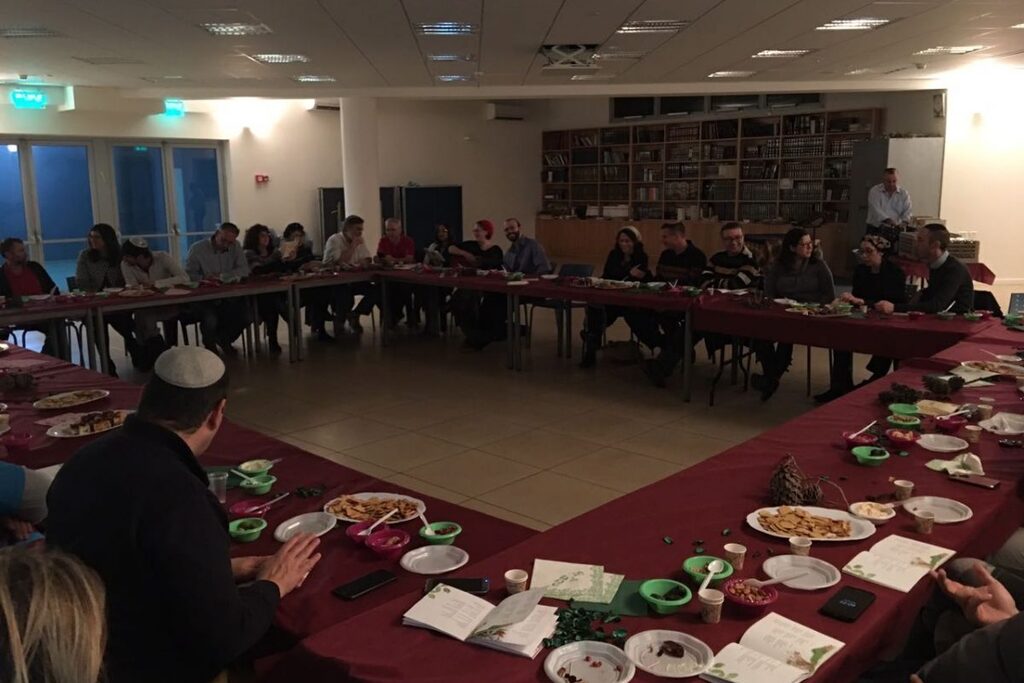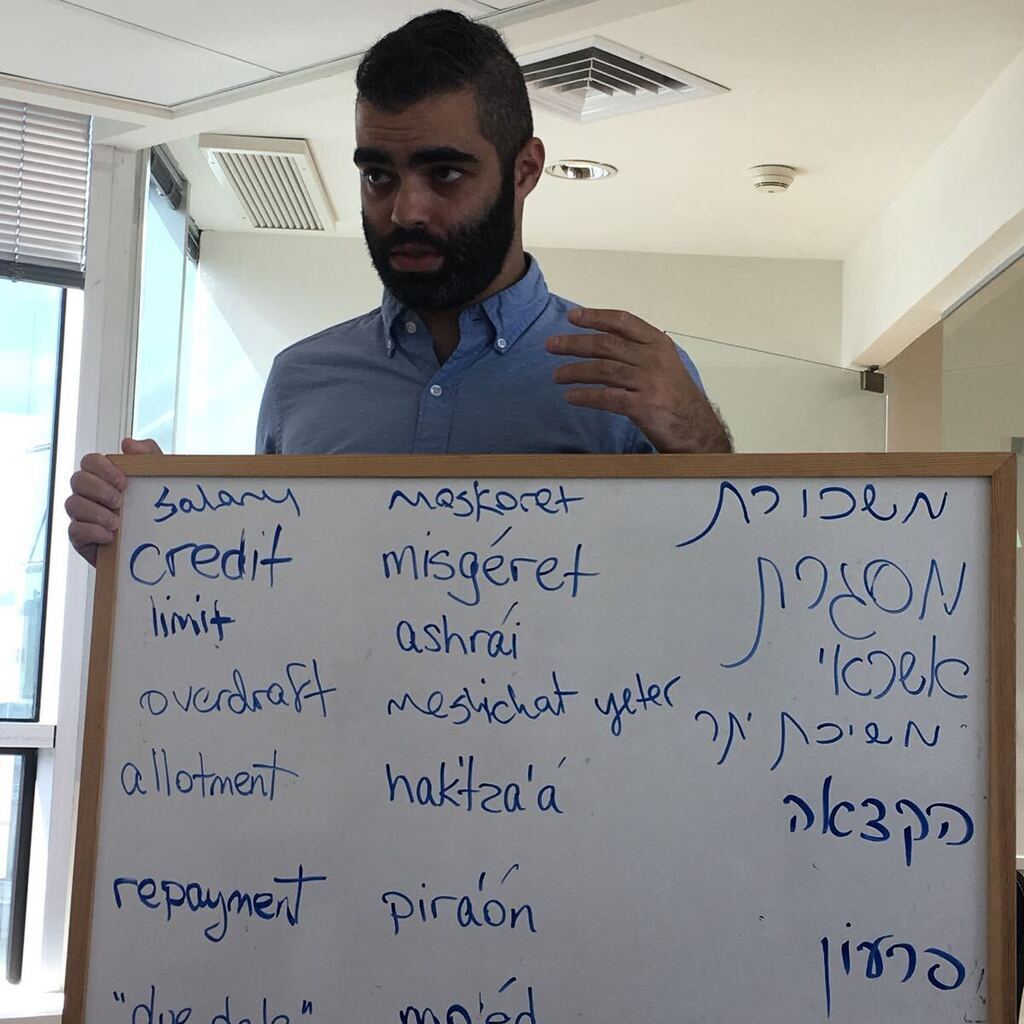In partnership with Nefesh B'Nefesh
Every new immigrant discovers very quickly that the journey of Aliyah to Israel does not end the moment they step off the plane. Upon arrival, their long-standing Zionist dreams and ideals are met with the reality of everyday life, which includes bureaucratic struggles, culture shock and adapting to a new way of life.
In recent years, communities and support networks have been forming throughout the country, ensuring a soft landing and smooth transition into “Israeliness.”
Most often, these are independent initiatives of Anglo-Saxon immigrants who have settled, acclimated, and now have a sense of mission to help these newer immigrants.
"A strong and supportive community is one of the greatest gift we could wish for our newcomers, as it is the key to their success as they begin their new lives as Israeli citizens," says Zev Gershinsky, Executive Vice President of Nefesh B'Nefesh.
“Especially during the Coronavirus Pandemic, when challenges surrounding Aliyah increased, it warms the heart to see the dedication of these veteran immigrants and how they have rallied together to assist these new immigrants, all while adapting to ever changing rules and restrictions affecting their own lives."
We met some of the communities and groups that are helping their new neighbors.
The Kaiser Community in Modiin: Kiddush and Networking
Danielle Krieger, 31, immigrated with her husband and three children from New York just a year and a half ago with the help of Nefesh B’Nefesh, in cooperation with the Ministry of Aliyah and Integration, the Jewish Agency, Keren Kayemeth LeIsrael and JNF-USA, and has already become a prominent figure.
"We are already considered veterans," laughs Danielle. "Twelve more families have arrived since we made Aliyah, which is a lot."
Kaiser is a mixed and diverse community, which includes native Israelis alongside new and veteran immigrants from America, Canada, England, South Africa as well as Portugal and Brazil.
The warm and supportive community in the neighborhood mixes spirituality and practicality: from meetings in the neighborhood synagogue and weekly community kiddushes, to as broad support network that includes assistance in finding work, housing and schools for children.
In the past year, the sense of community has suffered due to the Corona crisis, which makes it particularly difficult for new immigrants to adapt to the neighborhood, such as in the case of Aviva (35), who immigrated to Israel with her family last March.
"We were one of the first flights from abroad to go into isolation," notes Aviva, adding that a week before the flight, she published a post in the Kaiser neighborhood group asking for help, and Danielle immediately came to her aid.
"The transition was difficult and complicated, but we made the right choice. There is a warm community here, to this day strangers help us, and go above and beyond. We are grateful and happy to have such a strong network here, especially when our whole extended family is so far away."
The adoptive families of the Tel Mond community
The Tel Mond community is one of the oldest and best-known among the new immigrants from Anglo-Saxon countries. Darren Platzky, 54, who immigrated to Israel from South Africa with his wife in 1993 and was one of the founders of the community in the late 1990s, says that although he did not experience difficulties adapting to the country, he felt that something was missing.
"We grew up in Johannesburg in pluralistic religious homes, and it was important for me to raise my children in a mixed town, so that they would learn that not everyone lives and thinks like us," he explains.
He and his wife joined 23 other families of Israelis and new immigrants, who were looking for a place to build a community and found it in Tel Mond.
The small community has grown and developed, and soon gained a worldwide reputation among immigrants, who are looking for a warm and supportive community to live in Israel.
Today the community numbers 175 families and welcomes anyone who is interested with open arms and support.
They celebrate family occasions, festivals and weekends together, they assist families with newborn children and offer support in cases of death and mourning. Over the years they have built their own synagogue and community center, and the school is considered one of the best in the area.
The assistance to the new immigrants, Darren says, begins even before they immigrate to Israel.
"We have adoptive families who are responsible for each family’s integration. Every immigrant family receives a representative from the community, who sits with them and teaches them about what is happening in the community. They are given tours and a map."
For the Tel Mond community, the Coronavirus created many challenges, forcing its members to reassess how to best assist the absorption of new residents and immigrants.
"Since the beginning of Corona, six new families have arrived here," says Effie Mansdorf, 45, who immigrated with his family a decade ago from the United States through Nefesh B’Nefesh, and is responsible for the integration of new immigrant families.
“The Corona is a challenge for the new immigrants because they have to get off the plane and go straight into isolation, without most of their belongings. We provide them with temporary furniture, arrange food and meals for their first two weeks, and constantly call and make sure they have everything they need. When you immigrate to Israel and reach such a strong and supportive community, you feel much less alone."
The lone immigrants are no longer alone
Every year thousands of young men and women, aged 18 to 21, immigrate to Israel. Many of them go through the journey alone, without family members, and as part of their adaptation to Israeli society, they seek to serve in the army or volunteer for national service - a complex and challenging stage in every young person's life.
6 View gallery
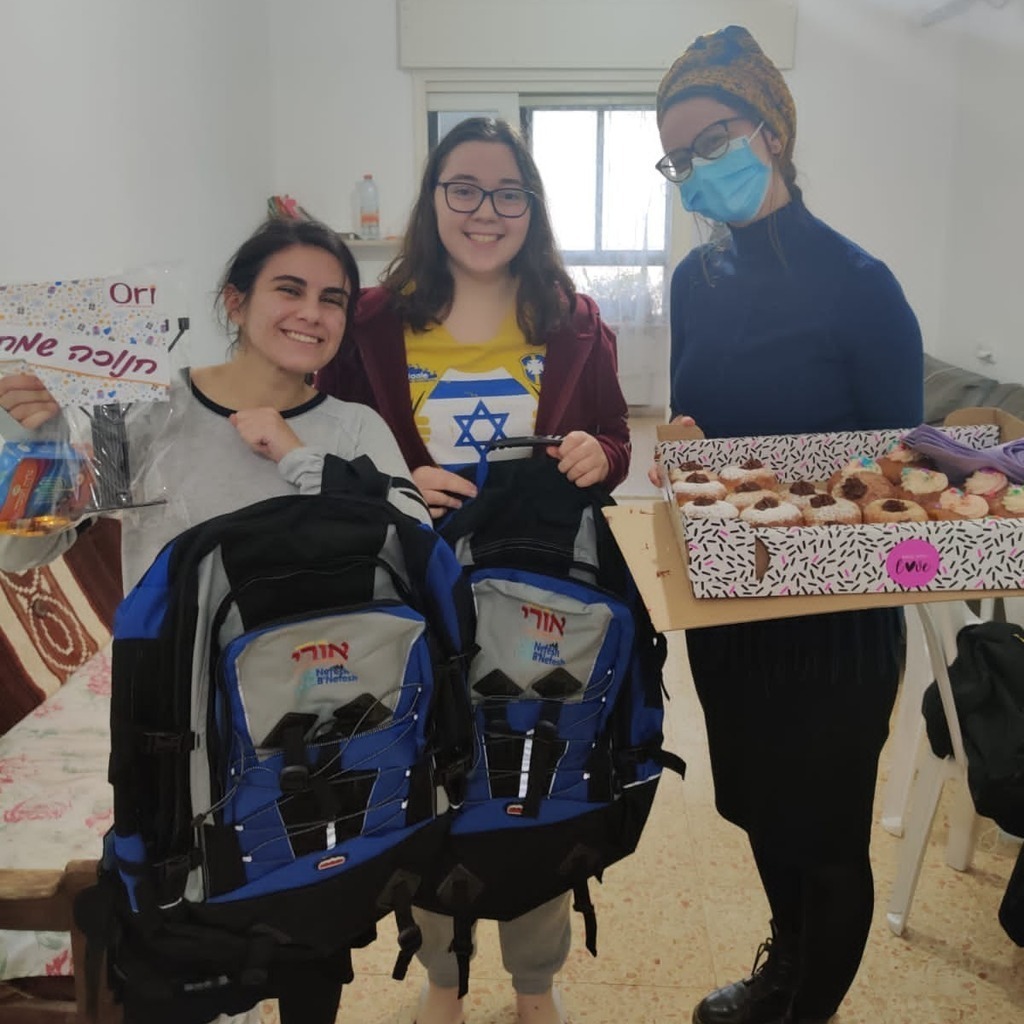

Racheli Matis-Goldsmith with young women who immigrated without their families
(Photo: Keren Reichman)
"The hardest thing about immigrating to Israel was the culture," says Racheli Matis-Goldsmith, 24, a nursing student who immigrated from the United States four years ago, after attending a pre-military preparatory academy (Mechina) in Israel.
"I was a year after high school, and I knew nothing about life. I had to learn a new culture and language and also learn how to live in a new country."
After completing her preparatory year and Aliyah process, Racheli decided to volunteer for national service as a lone bat-sheirut (national service volunteer) in the V’Hadarta Organization, in which she assisted the elderly.
"I wanted to do something for the country, and I also wanted to adapt, to slowly enter into Israeli culture."
After her year of service, she began her academic studies and at the same time began volunteering in the Ori Program for lone national service volunteers, run by Nefesh B’Nefesh.
As part of the program, which was launched a year and a half ago, Racheli's role is to keep in touch with dozens of individual national service volunteers, offering them support and assistance.
The need for a safety net and emotional support for these girls in national service is becoming more important during the coronavirus period, which is full of many uncertainties.
"During the lockdowns for instance, I checked on them to see all was OK. I help them if they have questions, like how to make an appointment with a doctor. My job is just to be there, like a big sister. I was also a lone bat-sheirut, and I had a hard time. I think to myself "today, they thankfully have much better support than I had."
'We built the support ourselves'
The first time Jay Rosen, 39, a native of Washington DC, visited Israel was at the age of 18 upon graduating from high school. But it was only after he entered student politics at NYU, with his appointment as chairman of the pro-Israel groups at the university, that the love of Israel was ignited in him in full force.
He studied Middle Eastern Studies and Diplomacy, and after graduation began working for Birthright, which was then just an idea.
"As part of my activities, I came to Israel again, and everything suddenly connected for me. I realized that I had more options here. I felt more comfortable here, and that I had something to contribute."
He immigrated to Israel alone in 2006, and although a job awaited him, that does not mean that there were no difficulties in adapting.
"I had a job and understood the language, but not fluent enough to walk around and live my daily life like paying bills." It is precisely these small bureaucratic matters, Jay testifies, that can break the spirit of the new immigrant.
But he did not give in to these hardships and rebuilt himself from scratch. He currently lives in Tel Aviv - a tireless entrepreneur, facilitator and mentor. He volunteers in several groups and programs for new immigrants, as well as with creative initiatives founded to reduce cultural gaps, such as "Hayyati"(transliterates to 'My Life' in Arabic and 'My Tailor' in Hebrew), a project that provides training in intercultural communication for entrepreneurs and associations.
"Cafe Oleh", a Hebrew workshop for new immigrants, is another original venture developed by Jay.
"These are not formal lessons," he emphasizes, "but meetings that focus on everyday Hebrew, and learning activities such as paying bills, filing a complaint, finding a job - things that are not necessarily learned at Ulpan."
In addition, he runs the Here & There Club, a social club for new immigrants, who share experiences, challenges, difficulties and opinions. He also volunteers at the LGBTQ Olim Center, which "gives immigrants in the community an open and safe place to learn the language with all the difficulties and challenges involved in being LGBTQ in Israel."
The many communities and groups that have been founded in recent years by new and veteran immigrants, Jay explains, meet the burning need for support that immigrants like him do not always receive.
"We built the support ourselves. We did not wait for anyone to build the framework for us. Israelis are still trapped in the delusional stereotype, thinking that for us Americans it is a luxury to immigrate to Israel - and that is simply not true. We also need resources to adapt, just like everyone else."
Gershinsky, Executive VP of Nefesh B’Nefesh adds, that today the organization knows how to identify and map the Anglo-Saxon immigrant communities throughout Israel and forward this information to our immigrants in the initial stages of their Aliyah process, which is a very important factor in choosing where to reside in Israel.
"Their choice can stem from their family status (i.e. young couples, singles, families, retirees, etc), their interest to be with like-minded Olim, or alternatively to adopt a new lifestyle for themselves. With that being said, local municipalities and councils can only benefit from the contribution that Olim can make to their communities and the residents around them."
First published: 13:01, 04.14.21


